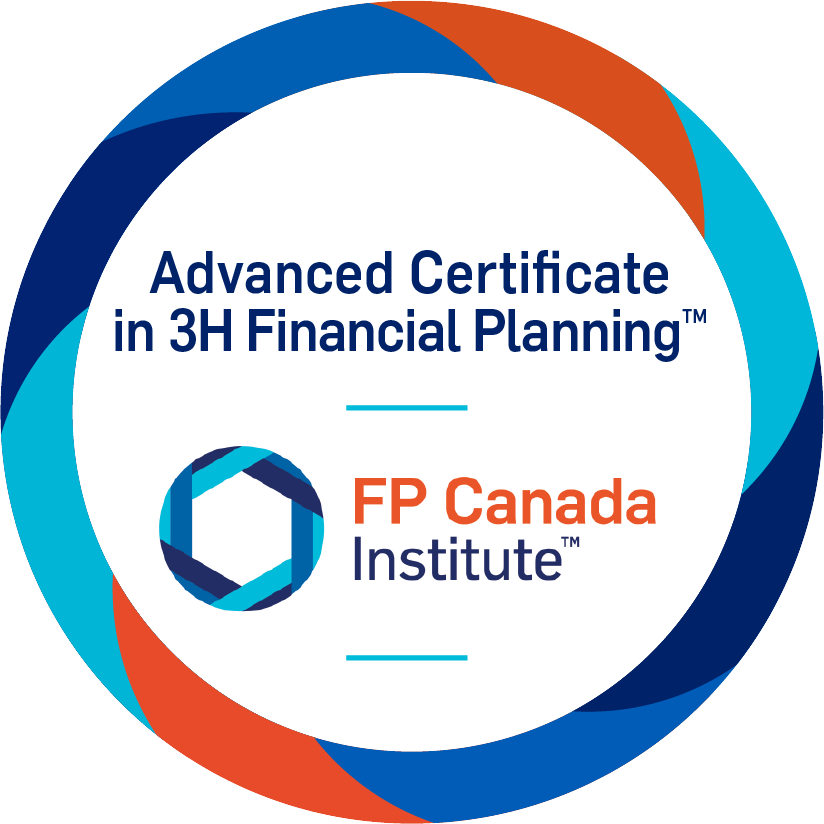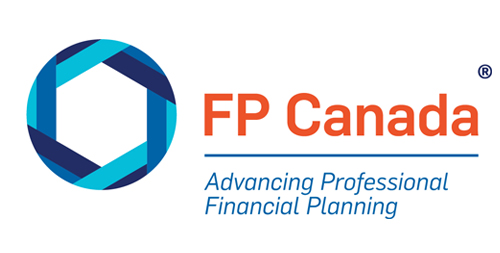
YOU SPOKE. WE LISTENED.
3H FINANCIAL PLANNING – Holistic, Human, Honest
At the FP Canada Institute™, we pay attention to the evolving needs of Certified Financial Planner® professionals and the financial services industry as a whole. Through surveys and consultations, we identified the need for a continuous professional development program that goes beyond technical skills and offers hands–on learning in the areas of Holistic Financial Planning, Human Behaviour and Honesty and Ethics (3H)—setting the foundation of a new approach to continuous professional development education for the profession.
The Advanced Certificate in 3H Financial Planning™
A Continuous Professional Development Program for CFP® professionals
The Advanced Certificate in 3H Financial Planning, specifically designed for CFP® professionals, provides practical and actionable learning, covering all stages of the financial planning process. The emphasis on 3H Financial Planning – Holistic Financial Planning, Human Behaviour and Honesty and Ethics, leads to effective client engagement for strong, long-lasting relationships and translates into tangible client outcomes, ensuring you stay at the forefront of your financial planning career.

To my knowledge, nothing I've done with other providers or internally with employers can match this course specifically for Financial Planning roles. Quality of the platform and the course was top notch, and the behavioural concepts were applied perfectly to Financial Planning roles. — Program Participant
Program Details
The Advanced Certificate in 3H Financial planning™ is a collection of 15 interactive courses. All courses are eligible for continuing education credits. While completion of all 15 courses is a requirement to obtain the Advanced Certificate in 3H Financial Planning™ the program also allows you the flexibility to choose a pre-defined set of courses called a ‘concentration’. You can also choose to work your way through the program by choosing individual courses.
CE Credits
Earn financial planning and professional responsibility credits
Download CE Credit Information
Enrolment Options
OPTION #1 Advanced Certificate in 3H Financial Planning™ (Full Program – all 15 courses)
$1,560 $1,248 — Get 20% in savings on the complete program (15 courses) until January 31, 2024!
ALL COURSES NOW OPEN FOR REGISTRATION
Concentrations | Holistic Financial PlanningNow Available | Human BehaviourNow Available | Honesty and EthicsNow Available |
|---|---|---|---|
| Enhancing Client Engagement | Demonstrating your Value Creating, demonstrating and sharing your value proposition with clients for better engagement | Building Rapport and Professional Relationships Learning how to apply the principles of behavioural economics for stronger client relationships | Creating Transparency and Avoiding Conflicts Addressing ethical dilemmas that arise while defining the value proposition and at the terms of engagement stage |
| Deepening Client Conversations | Going Beyond Standard Discovery Optimizing client conversations by employing qualitative questions and comprehensive discussions | Deepening Qualitative Discovery Identifying gaps in standard discovery methods and using behavioural economics strategies to fully understand the client | Identifying Ethical Obligations in Discovery Identifying and effectively handling conflicts and confidentiality concerns during the discovery stage |
| Improving Analytical Effectiveness | Ensuring Analytical Rigour Assessing the client’s current situation and applying new frameworks to identify and evaluate financial planning strategies | Validating your Analysis Building awareness of biases and heuristics, during analysis and understanding the importance of validating strategies | Managing Conflicts with Professional Obligations Learning to deal with discrepancies, conflicting instructions, and situations outside your area of expertise |
| Building Client Centric Plans | Delivering Effective Recommendations Exploring strategies for developing stronger recommendations and to prepare and tailor your discussions to gain client commitment | Gaining Plan Acceptance Overcoming cognitive overload and using strategies to develop and deliver plans for better client adoption | Building Balanced Recommendations Considering ethical issues and strategies around developing balanced recommendations and unbiased presentation of information |
| Supporting Client Action | Enabling Client Success Ensuring support and commitment to the financial plan during the implementation, monitoring and review stages | Facilitating Implementation Optimizing plan reviews and learning to avoid implementation gaps by better understanding client biases | Addressing Ethical Issues in Plan Execution Effectively protecting the client’s interests while navigating ethical issues that can occur during the implementation, monitoring and review of the financial plan |
OPTION #2 Skill Based 3H Concentrations
Skill based 3H concentrations will give you a deep dive in a specific skill set, such as human behaviour, and how behavioural economics impacts every stage of the planning process. There are 3 skill-based concentrations with 5 courses each.
$552.50 $470 — Get 15% in savings on the skill-based concentrations (Set of 5 courses each) until January 31, 2024!
ALL COURSES NOW OPEN FOR REGISTRATION
Holistic Financial Planning
Course Name | Description |
| Demonstrating your Value | Creating, demonstrating and sharing your value proposition with clients for better engagement |
| Going Beyond Standard Discovery | Optimizing client conversations by employing qualitative questions and comprehensive discussions |
| Ensuring Analytical Rigour | Assessing the client’s current situation and applying new frameworks to identify and evaluate financial planning strategies |
| Delivering Effective Recommendations | Exploring strategies for developing stronger recommendations and to prepare and tailor your discussions to gain client commitment |
| Enabling Client Success | Ensuring support and commitment to the financial plan during the implementation, monitoring and review stages |
Human Behaviour
Course Name | Description |
| Building Rapport and Professional Relationships | Learning how to apply the principles of Behavioural Economics for stronger client relationships |
| Deepening Qualitative Discovery | Identifying gaps in standard discovery methods and using behavioural economics strategies to fully understand the client |
| Validating your Analysis | Building awareness of biases and heuristics, during analysis and understanding the importance of validating strategies |
| Gaining Plan Acceptance | Overcoming cognitive overload and using strategies to develop and deliver plans for better client adoption |
| Facilitating Implementation | Optimizing plan reviews and learning to avoid implementation gaps by better understanding client biases |
Honesty and Ethics
Course Name | Description |
| Creating Transparency and Avoiding Conflicts | Addressing ethical dilemmas that arise while defining the value proposition and at the terms of engagement stage |
| Identifying Ethical Obligations in Discovery | Identifying and effectively handling conflicts and confidentiality concerns during the discovery stage |
| Managing Conflicts with Professional Obligations | Learning to deal with discrepancies, conflicting instructions, and situations outside your area of expertise |
| Building Balanced Recommendations | Considering ethical issues and strategies around developing balanced recommendations and unbiased presentation of information |
| Addressing Ethical Issues in Plan Execution | Effectively protecting the client’s interests while navigating ethical issues that can occur during the implementation, monitoring and review of the financial plan |
OPTION #3 Process Stage Concentrations
Process stage concentrations will give you an in-depth understanding of how all 3H concepts apply at any given stage of the planning process. There are 5 process stage concentrations with 3 courses each.
$351 $315 — Get 10% in savings on the process stage concentrations (Set of 3 courses each) until January 31, 2024!
ALL COURSES NOW OPEN FOR REGISTRATION
Concentrations | Holistic Financial PlanningNow Available | Human BehaviourNow Available | Honesty and EthicsNow Available |
|---|---|---|---|
| Enhancing Client Engagement | Demonstrating your Value Creating, demonstrating and sharing your value proposition with clients for better engagement | Building Rapport and Professional Relationships Learning how to apply the principles of behavioural economics for stronger client relationships | Creating Transparency and Avoiding Conflicts Addressing ethical dilemmas that arise while defining the value proposition and at the terms of engagement stage |
| Deepening Client Conversations | Going Beyond Standard Discovery Optimizing client conversations by employing qualitative questions and comprehensive discussions | Deepening Qualitative Discovery Identifying gaps in standard discovery methods and using behavioural economics strategies to fully understand the client | Identifying Ethical Obligations in Discovery Identifying and effectively handling conflicts and confidentiality concerns during the discovery stage |
| Improving Analytical Effectiveness | Ensuring Analytical Rigour Assessing the client’s current situation and applying new frameworks to identify and evaluate financial planning strategies | Validating your Analysis Building awareness of biases and heuristics, during analysis and understanding the importance of validating strategies | Managing Conflicts with Professional Obligations Learning to deal with discrepancies, conflicting instructions, and situations outside your area of expertise |
| Building Client Centric Plans | Delivering Effective Recommendations Exploring strategies for developing stronger recommendations and to prepare and tailor your discussions to gain client commitment | Gaining Plan Acceptance Overcoming cognitive overload and using strategies to develop and deliver plans for better client adoption | Building Balanced Recommendations Considering ethical issues and strategies around developing balanced recommendations and unbiased presentation of information |
| Supporting Client Action | Enabling Client Success Ensuring support and commitment to the financial plan during the implementation, monitoring and review stages | Facilitating Implementation Optimizing plan reviews and learning to avoid implementation gaps by better understanding client biases | Addressing Ethical Issues in Plan Execution Effectively protecting the client’s interests while navigating ethical issues that can occur during the implementation, monitoring and review of the financial plan |
OPTION #4 Individual Courses
Individual courses. Each of which introduces you to a given concept and how it applies at a specific stage of the financial planning process.
$130
Download Full Course Descriptions REGISTER NOW
Course Structure
All courses are presented through an online Learning Management System that is easy to navigate. Each course consists of:
- Course Learning
- Illustrative Case
- Course Assessment
- On-the-job Practice and Reflection Exercises
To successfully complete the course, students must pass the course assessment, and successfully complete all on-the-job practice and reflection exercises.
.jpg?sfvrsn=be286b0c_4)
.jpg?sfvrsn=764283d1_4)
I have not experienced content like this previously in the marketplace. The distinguishing factors are the on-the-job practice and reflection exercises. It connects the theory with the actual day to day planner experience. — Program Participant

Program Features
Practical and Actionable Content
Tools and techniques ready to apply to your practice
Digital Credentials
Demonstrate your learning on multiple platforms with digital badges and certificates
Flexible Learning
Work your way to the advanced certificate through skill concentrations or process stage concentrations or through individual courses
Self-Paced Learning
Study at your own pace through an online Learning Management System with downloadable practice tools and exercises
CE Credits
Earn financial planning and professional responsibility credits
Download CE Credit Information
Practice exercises are huge in helping apply the learning and immediately see the impact it can have on your clients and on your practice. — Program Participant
Expected Outcomes
Improved Client Outcomes
By applying new and practical financial planning models, tools, and strategies
Strong Client Relationships
By developing trust through a deep understanding of behavioural economics principles
Enhanced Planner Brand Value
By demonstrating advanced skills to clients and employers through digital credentials

How to Register
To register for a continuous professional development course, log in to the FP Canada Portal and complete the FP Canada Institute Continuing Education Application available on the "My Applications" page.
Maximum Allowance Time to Start and Complete the Course
Depending on the course package you purchase, you have the following time-period to start your course(s):
- Advanced Certificate in 3H Financial Planning – 33 months
- Skill Based 3H Concentration – 9 months
- Process Stage Concentration – 5 months
- Individual Courses – 1 month
Any course(s) that are not started by the deadline will start automatically after the deadline.
You will have three (3) months from the course start date to complete the course. Failure to successfully complete the course within three months of starting will result in an “incomplete” record for the course.
Questions
For assistance with your continuous professional development registration or for questions about the course please contact our FP Canada certificant and student services team at info@fpcanada.ca, 416-593-8587 or 1-800-305-9886.

